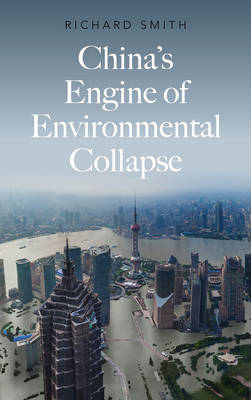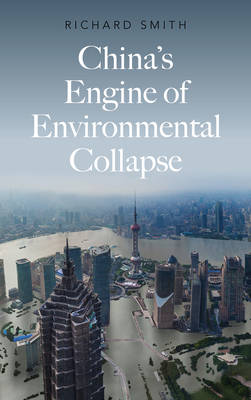
- Afhalen na 1 uur in een winkel met voorraad
- Gratis thuislevering in België vanaf € 30
- Ruim aanbod met 7 miljoen producten
- Afhalen na 1 uur in een winkel met voorraad
- Gratis thuislevering in België vanaf € 30
- Ruim aanbod met 7 miljoen producten
Zoeken
€ 156,45
+ 312 punten
Uitvoering
Omschrijving
As the world hurtles towards environmental oblivion, China is leading the charge. The country's CO2 emissions are more than double those of the US yet its GDP is just two-thirds as large. China leads the world in solar and wind energy generation but it's building new coal-fired power plants even faster than renewables. The country's lakes, rivers and aquifers are severely polluted. Twenty percent of China's farmland has been declared too toxic to farm. Yet this 'socialist' government still prioritizes growth over the environment. Why is China's environmental crisis so much worse than 'normal' capitalism most everywhere else, and why can't China's fiercely authoritarian government suppress pollution from its own industries? Richard Smith argues China's economy is driven by extra-economic nationalist-industrialist imperatives which are more powerful than the maximization of profit. Yet both Western capitalism and China's 'communist-capitalism' are racing each other to apocalypse. He contends that nothing short of drastic industrial shutdowns and retrenchments, especially in China and the US, will suffice to slash emissions enough to save the planet - but implementing such policies without precipitating economic collapse will require a transition to ecosocialism. This book brings together environmental science, political science, economics and sociology in a uniquely comprehensive analysis that will change the debate from market meliorism to the need for radical system change.
Specificaties
Betrokkenen
- Auteur(s):
- Uitgeverij:
Inhoud
- Aantal bladzijden:
- 320
- Taal:
- Engels
- Reeks:
Eigenschappen
- Productcode (EAN):
- 9780745341552
- Verschijningsdatum:
- 20/07/2020
- Uitvoering:
- Hardcover
- Formaat:
- Genaaid
- Afmetingen:
- 152 mm x 229 mm
- Gewicht:
- 639 g

Alleen bij Standaard Boekhandel
+ 312 punten op je klantenkaart van Standaard Boekhandel
Beoordelingen
We publiceren alleen reviews die voldoen aan de voorwaarden voor reviews. Bekijk onze voorwaarden voor reviews.











